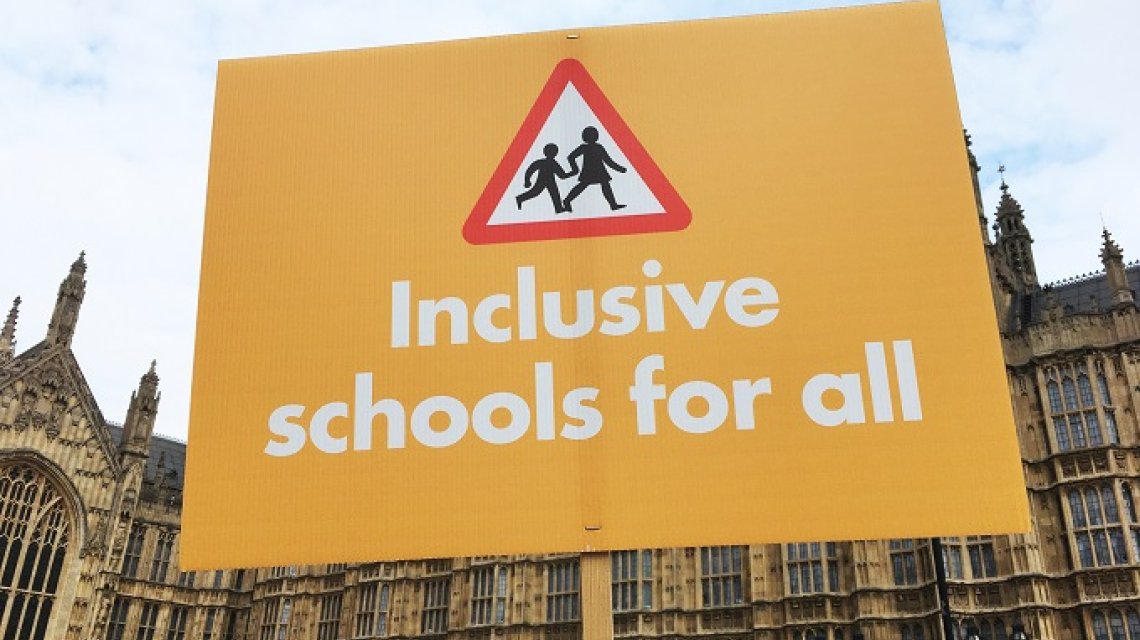Faith based selection sends a damaging message to our children
Joanne Bartley, a campaigner with the group Comprehensive Future, argues that a comprehensive education system should also be free of religious selection.
Earlier this year Comprehensive Future worked with the National Secular Society (which coordinates the No More Faith Schools campaign) to bring together a coalition calling for a review of our fragmented admissions system. Whatever our disagreements or particular focus – religious selection for the NSS, academic selection for my own organisation, or social selection for many of our allies – we agreed that selection goes to the heart of the unfairness in our education system.
To my mind, selection based on faith raises the same unfairness as selection based on the 11-plus. My local 'choice' of state secondary education offers three grammar schools, two faith schools, and three community ethos schools. Some parents have a great many school options, while the unlucky majority find limited choice. This isn't equality of opportunity – it's a system with winners and losers which drives social division in our schools. And the very exclusivity of schools practising faith or academic selection appears to propel them to the top in a hierarchy of esteem.
A school anyone can attend is seen as uninspiring and nothing special. Yet surely we're looking at this all wrong? The welcoming, inclusive schools should be respected. The schools that choose who they'll teach should be viewed as mean and uncharitable.
I'm a Christian who doesn't play the faith school game. I want my children to choose their own route to faith if they wish to do so, so I have no paperwork for their Sunday school attendance. The local C of E schools take this as proof that my faith isn't strong enough, and so I don't qualify for 'their' schools.
The church seems to think faith can be weighed and judged using rules and paperwork. Three years' church attendance trumps two years' attendance. The more ticks on a Sunday school sheet, the more Christian your children must be.
I don't think any church should judge children by the actions of their parents. In my Methodist Sunday school I remember a Victorian picture of Jesus embracing a group of children under the caption: "Suffer the little children to come unto me." It definitely didn't say: "Suffer the little children to come unto me, if their parents have been to church every week and have paperwork signed by the vicar."
To my mind a church should be neighbourly and welcoming. But our faith schools are judging and criticising, and telling five year olds they don't fit.
Selective schools are like playground team captains. They say: "You'll do. You won't do." And so a whole bunch of children are told: "You're not good enough." But surely public policy shouldn't pander to parents' desire for their children to avoid children who are different?
Research by Simon Burgess and others shows school choice is driven by three factors. Parents consider the proximity of a school, they want excellent academic results, and they consider the social status of the school's pupils. This social status factor may well be unconscious. Burgess said: "Parents do not admit to choosing schools on the basis of their social composition, but this happens in practice."
Schools educating wealthier pupils tend to achieve exam success, so two school choice factors are linked. Faith schools, or other schools with selective admissions, usually admit higher social status pupils, these pupils get better exam results, this leads to a better Ofsted grade, and so these selective schools "win" the school popularity game.
I don't think our politicians stop to think about this. School choice is seen as intrinsically a good thing, politicians will say 'faith schools are popular', but shouldn't they dig a little deeper?
If policy makers were to recognise that schools for 'people like us' are popular, wouldn't they see this as a problematic position? Isn't it thinking that comes from the same root as any segregation, from the Montgomery buses to Belfast streets? Doesn't knowing our neighbours make us closer and kinder? Why is education segregation so rarely questioned?
I wish our politicians would take a brave stance and confront this issue. If it were accepted that parents sometimes, unconsciously, choose schools with higher social status pupils, wouldn't they offer policy to discourage this? I think they might work to ensure admission policies encouraged a good social mix in all schools.
Our politicians should recognise that school choice harms our communities when it encourages divides. Our open to all community schools should be celebrated. We should rid our system of the schools that exclude with a test of faith – or, in my view, a specific score in a test at 10.
Schools with simple admissions do work for the families that choose them, so why not celebrate and promote inclusive schools? I can never imagine parents demanding Annie should leave because she didn't attend Sunday school twice a month; I don't think any class of pupils would insist Peter is educated in another building because he scored 60 points not 65 in a test. Yet our politicians allow admissions that operate exactly like this. We have built a system that allows children to be made to feel unwanted.
I don't respect the schools set up for selection and exclusion. I celebrate our brave, kind, open-to-all community ethos schools. Their message is: "You're welcome, and we value you, one and all."

